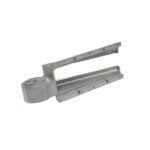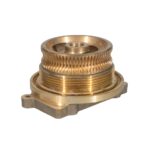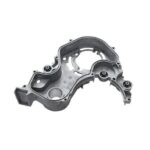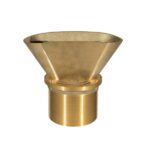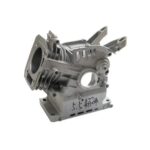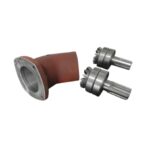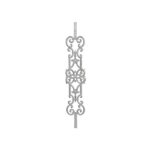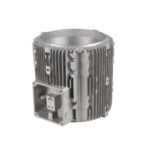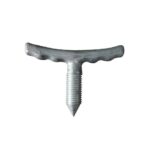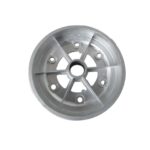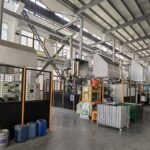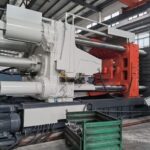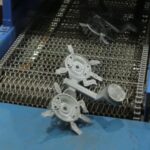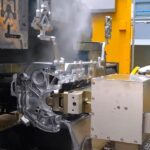The manufacturing of cast aluminum engine blocks is a highly intricate process that combines advanced technology, precision, and expertise to produce lightweight, high-strength components for modern vehicles.
Aluminum engine blocks are favored in the automotive industry for their ability to reduce vehicle weight and improve fuel efficiency, all while maintaining the structural integrity needed for optimal performance.
In this guide, we’ll explore the key steps involved in casting aluminum engine blocks, including the advantages of using aluminum, different casting methods, and the essential processes that turn raw aluminum into reliable engine components.
Why Aluminum for Engine Blocks?
Aluminum is the preferred material for engine blocks due to its lightweight nature, excellent thermal conductivity, and corrosion resistance. Compared to traditional cast iron, aluminum offers the following advantages:
- Weight Reduction: Aluminum is about one-third the weight of cast iron, significantly lowering the overall vehicle weight.
- Improved Heat Dissipation: Aluminum conducts heat more efficiently, which helps prevent engine overheating.
- Fuel Efficiency: A lighter engine contributes to better fuel economy, making aluminum a more eco-friendly option for manufacturers.
- Corrosion Resistance: Aluminum naturally forms a protective oxide layer, which reduces the risk of corrosion in the engine environment.
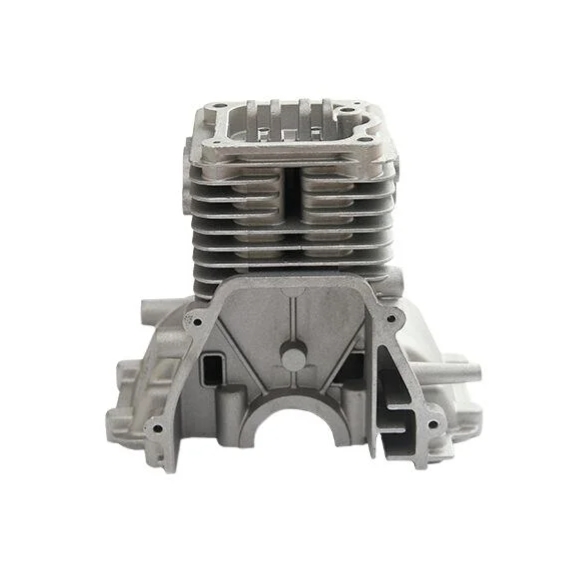
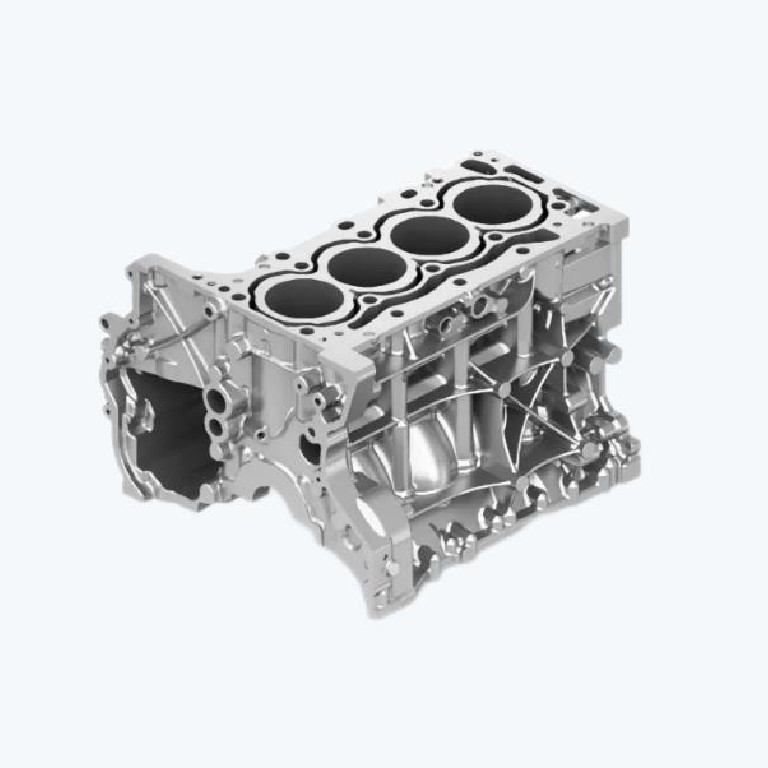
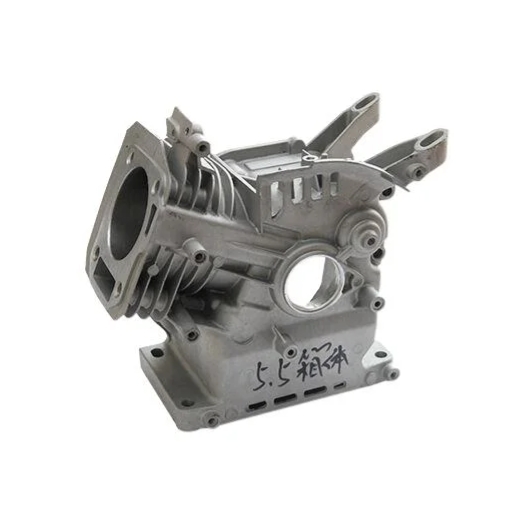
Searching for High-Quality for Cast Aluminum Parts?
You’ve come to the right place! Yongzhu Casting is a certified die casting manufacturer with over 20 years of expertise in the industry.
We have successfully completed numerous die casting projects for Aluminum casting parts, particularly in your industry.
Design Review & DFM Support
Our professionals will evaluate your designs and provide suggestions for cost savings. Additionally, we offer Design for Manufacturing (DFM) assistance and conduct mold flow analyses to facilitate efficient production.
State-of-the-Art Manufacturing Equipment
Our facility is equipped with advanced hot-chamber and cold-chamber die casting machinery for aluminum and zinc production.
We also utilize high-precision CNC machines in a temperature-controlled workshop, featuring 3-Axis, 4-Axis, 5-Axis, and 7-Axis setups to manage any project you have.

Rigorous Quality Control Measures
Our dedicated quality control team ensures that all parts meet the highest standards of quality and consistency.
We employ high-accuracy measurement instruments, including CMM, spectrometers, and X-ray detectors.
Comprehensive Surface Treatment Options
We provide a variety of surface finishing techniques for your precision die casting components. Our in-house services include cleaning, polishing, anodizing, shot blasting, and painting.
Flexible Project Acceptance
While larger manufacturers often shy away from low-volume projects, and smaller ones may struggle with quality, Yongzhu Casting stands apart.
We prioritize customer satisfaction and willingly accept high-mix, low-volume projects like yours.
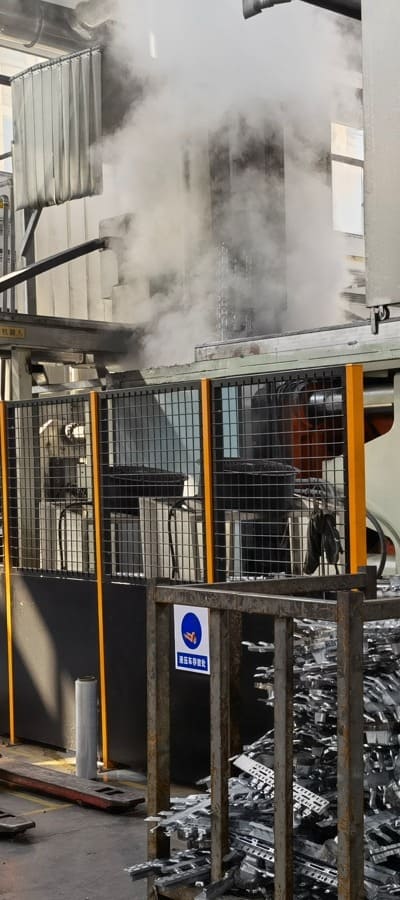
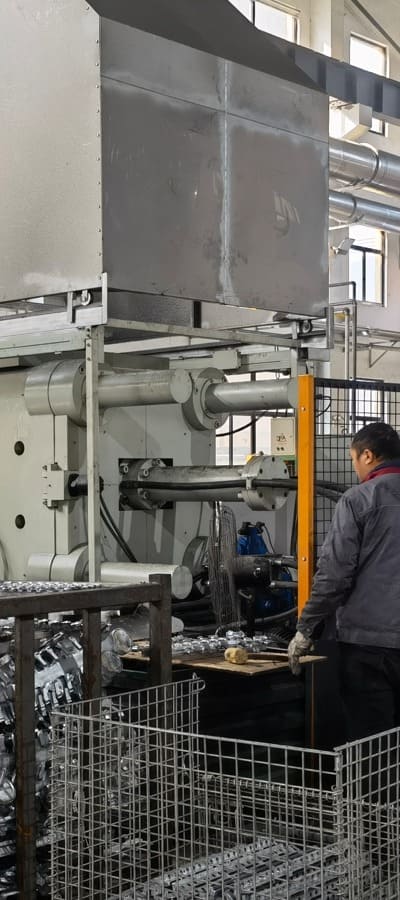
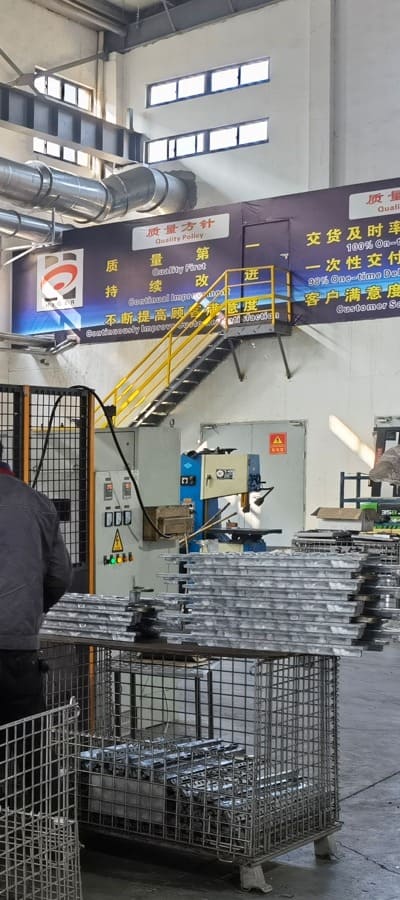
Steps in Making Cast Aluminum Engine Blocks
The process of manufacturing cast aluminum engine blocks involves several critical steps, each contributing to the final product’s strength and durability. Below is an overview of the key stages:
1. Material Selection and Preparation
The process begins with selecting high-grade aluminum alloys. Common alloys used for engine blocks include A356 and 319 aluminum, which offer a balance of strength, ductility, and machinability.
These alloys are melted in large furnaces at temperatures exceeding 660°C (1220°F), the melting point of aluminum.
2. Casting Process
There are multiple casting methods used to shape aluminum into engine blocks, with die casting, sand casting, and permanent mold casting being the most common.
Each method has its advantages, depending on the required production scale, precision, and final product quality.
Common Casting Methods for Aluminum Engine Blocks
| Casting Method | Description | Advantages | Limitations |
|---|---|---|---|
| Die Casting | Aluminum is injected into a steel mold under high pressure. | Fast, high-volume production. | Limited to thinner-walled parts. |
| Sand Casting | Aluminum is poured into sand molds. | Cost-effective for low volumes. | Lower precision, rougher surfaces. |
| Permanent Mold | Molten aluminum is poured into reusable steel molds. | High-quality surface finish. | Higher cost, slower than die casting. |
3. Cooling and Solidification
After the molten aluminum is poured into the molds, the casting is allowed to cool and solidify. The cooling process is critical as it determines the material’s microstructure and overall strength. Controlled cooling can help to avoid defects such as porosity, cracks, or weak spots in the engine block.

4. Post-Casting Processes
Once the cast is solidified, it undergoes several additional processes to ensure the final product meets the required specifications:
- Heat Treatment: Heat treatment is applied to enhance the aluminum’s mechanical properties, such as strength and toughness. This involves heating the cast engine block to a high temperature and then cooling it under controlled conditions.
- Machining: After heat treatment, the engine block is machined to achieve the precise dimensions required for proper engine operation. This includes drilling holes, creating cylinder bores, and adding complex internal features.
- Surface Finishing: The final steps include surface treatments, such as polishing or coating, to improve corrosion resistance and give the engine block a smooth, clean finish.
5. Quality Control and Testing
Each cast aluminum engine block must undergo rigorous quality control measures before it is approved for use.
X-ray inspections, ultrasonic testing, and leak testing are commonly employed to detect internal defects such as voids or cracks. In addition, dimensional checks ensure that all machined features meet precise specifications.
| Quality Control Method | Purpose | Key Benefits |
|---|---|---|
| X-ray Inspection | Detects internal defects like cracks or pores. | Ensures integrity and durability of the block. |
| Ultrasonic Testing | Identifies imperfections within the material. | Non-destructive, provides precise readings. |
| Leak Testing | Verifies that no fluid can leak through the block. | Ensures reliability in real-world conditions. |
Advantages of Cast Aluminum Engine Blocks
1. Lightweight Construction
One of the primary reasons automakers prefer cast aluminum engine blocks is their lightweight nature, which results in lower vehicle weight and improved fuel efficiency.
This is especially beneficial for electric vehicles and performance cars, where weight plays a crucial role in both range and speed.
2. Excellent Thermal Management
Aluminum’s high thermal conductivity allows it to dissipate heat more effectively than cast iron.
This helps the engine maintain optimal operating temperatures, preventing overheating and reducing the wear and tear on engine components.
3. Corrosion Resistance
Aluminum’s natural oxide layer provides excellent corrosion resistance, ensuring that the engine block can withstand harsh environmental conditions, such as exposure to moisture, road salts, and chemicals.
| Advantage | Benefit | Impact on Performance |
|---|---|---|
| Lightweight | Reduces vehicle weight and fuel consumption. | Increases fuel efficiency and range. |
| Thermal Management | Efficient heat dissipation. | Improves engine lifespan and reliability. |
| Corrosion Resistance | Withstands exposure to harsh environments. | Reduces maintenance costs and longevity. |
Challenges in Aluminum Engine Block Production
Despite the many advantages of aluminum engine blocks, there are some challenges involved in their production:
- Porosity: Gas bubbles can form within the molten aluminum, leading to voids or weak spots in the final product. Special care is required to minimize porosity during the casting process.
- High Machining Costs: Machining aluminum engine blocks to the required precision can be more expensive than working with other metals due to the need for specialized equipment.
- Fatigue Resistance: While aluminum is lightweight, it has lower fatigue resistance compared to steel, which means that certain design reinforcements may be needed for high-performance engines.
Conclusion
Cast aluminum engine blocks offer a balance of lightweight construction, thermal efficiency, and corrosion resistance, making them a favored choice for modern automotive manufacturers.
While the casting process is complex and requires strict quality control, the resulting product delivers enhanced performance, fuel efficiency, and long-term reliability in various vehicles.
By understanding the detailed steps involved in the manufacturing process and the benefits of cast aluminum, engineers and manufacturers can continue to innovate, producing lighter and more efficient engine blocks for the automotive industry.



